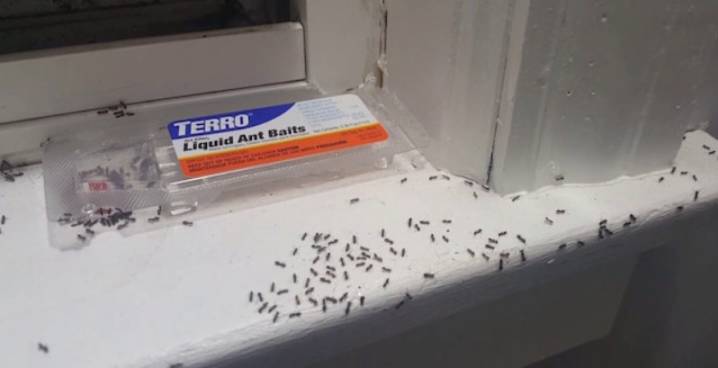One of the first things that surprises many first-time dog owners is how fragile a dog’s health can be. Just eating the wrong thing could put them in a life-threatening situation, and you will have to pay a lot in veterinarian fees over their lifetime. If you haven’t bought the dog yet, now is the perfect time to get informed about what issues they might have to deal with. Here are some of the conditions your dog may develop, and what you can do about them.
Connect with a verified veterinarian in minutes. Licensed vets are available 24/7 to answer your questions. No need to worry about your furry family member.
Tetanus
Tetanus affects thousands of dogs and people every year. It happens when a dog gets infected by the clostridium tetani bacteria. And, contrary to what many may think, tetanus can be transmitted in many more ways than simply stepping on a rusty nail.
Tetanus can get very serious in dogs and can even lead to death if not treated early, so you need to make sure that you know how to spot the early signs and get treatment immediately. If you want more information on the subject, we suggest you check out this guide to tetanus in dogs by Native Pet. It explains how to spot and treat tetanus in dogs, as well as general tips for dog owners. They also explain exactly what causes the condition, and the proper steps to prevent it.
Arthritis
Arthritis is not something that is limited to humans, unfortunately. Just like humans, you can expect your dog to start showing signs of arthritis as they age. They will usually start getting less active. Others will start acting a bit more cautiously or won’t jump at you as rigorously as they used to when you come through the door.
The tough part here is diagnosis since dogs don’t have a way to verbalize. However, one of the clear signs that they may be arthritic is if they suddenly act differently when you pet them. If they lash out at you when you pet them, it usually means that there’s something wrong. If that’s the case, it would be wise to go see a vet immediately to get to the bottom of the issue.
Also know that arthritis in dogs can be treated in similar ways as in humans. You have topical treatments and supplements that can be used to improve mobility, such as omega-3s and glucosamine. Also, know that it’s not the time to let them fall into a lethargic state. Not only will this not do their joints any good, but it increases the chances of them becoming overweight, which will only make matters worse.
It would also be wise to check which dogs are the most prone to arthritis before you buy or adopt one. This will give you a good idea of what to prepare for. Labradors, German shepherds, and golden retrievers are all examples of dogs who tend to develop arthritis, so watch out before picking any of these.

Review symptoms, medications & behavior to keep your pets healthy with a Vet Online in just minutes.
Ask a Vet Live NowCataracts
Cataracts are another issue that affects dogs and humans alike. Cataracts usually manifest themselves in older dogs and affect their vision, but can sometimes appear when the dog is very young. In addition, cataracts can develop as a result of trauma or disease. Some puppies have even been born with cataracts with others developing them a few weeks after they were born.
Ear Infections
Ear infections are surprisingly common in dogs, but even more so in dogs that are outside a lot. This is because there are more chances for them to get dirt and all sorts of foreign objects into their ears. Things like grass seed can also get in there. They will start by irritating the ear, which will then progress into an infection.
One of the best things you can do to prevent infections is to clean your dog’s ears regularly, but you need to have the proper technique to avoid injuries and make sure you’re doing a good job. You can check out this guide on cleaning dogs’ ears if you want more information. You should also look for early signs of infections, like a dog constantly pawing its ears, for instance.
When it comes to treatment, it’s usually simple and straightforward. Once a vet has diagnosed the infection, the issue will usually be fixed by using ear drops. You should also make sure that you supervise your dog when they play, especially the foraging types as foragers will have an instinct to dig.
Kennel Cough
This one is an issue that is most common in adopted dogs and those who lived in dog accommodation. While it is very common and can sound bad, you shouldn’t be too alarmed by this. It’s the equivalent of the common cold for us so this will usually be treated with antibiotics, but only for the most severe cases.
Diarrhea
Diarrhea and digestive issues are something you’re most likely to have to deal with for the whole duration of your dog’s life. In most cases, this will be caused by an allergic reaction or eating bad food. But, in other cases, it could be a sign of something much more severe. This is why you should never brush it off and see a vet immediately if you notice any signs.
Fleas and Ticks
These are issues everyone knows about, but few understand what causes them and how to prevent them. Many pet owners think that fleas and ticks are pretty much the same too, but they’re much different.
Fleas are pretty benign and can be knocked off easily with over-the-counter products. Ticks, on the other hand, can be very harmful to dogs. Some ticks have even been shown to paralyze and kill dogs, so this is not something you can take lightly. If you notice any signs of a tick infestation, you need to see your vet immediately.
Heartworm
Heartworm is one of the most potentially dangerous and common issues in dogs. This disease will start developing in the dog’s vital organs and can be fatal if left untreated. These worms are spread through mosquitoes. Once they bite the dog, the worm will then use the dog as a host and live in it. The worst part is that a dog may not show signs until things become serious.
Know, however, that many things can be done to prevent heartworm, and most of them involve medication. The dog should be tested beforehand to make sure that they’re not already infected as the preventative medication will not kill live worms. This should be done after they reach 7 months of age.
Food Poisoning
Last, but not least, you also have to prepare for your dog to suffer a few food poisoning accidents. This can be because they ate something they shouldn’t, or you gave it to them without knowing how harmful it was. In this case, you will need to get familiar with the types of food you should avoid and put them on a clearly visible list so you can remember.
These are all some common issues that you have to prepare for if you’re going to get a dog. The most important part is prevention, so make sure to find a great vet first and ask as many questions as you can.
Connect with a verified veterinarian in minutes. Licensed vets are available 24/7 to answer your questions. No need to worry about your furry family member.

Tom
Tom has always loved to write since he was little - he wanted to be either a writer or a veterinary doctor, but he ended up being a professional writer while most of his works are based on animals. He was born in San Francisco but later moved to Texas to continue his job as a writer. He graduated from the University of San Francisco where he studied biotechnology. He is happily married and a soon to be father!
Review symptoms, medications & behavior to keep your pets healthy with a Vet Online in just minutes.
Ask a Vet Live Now



